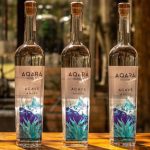Tourists are invited to visit the facility
Antigua’s Donkey Sanctuary serves as something of a dining hall, dormitory and doctor’s office for many of the island’s four-footed residents. The sanctuary, part of the Antigua & Barbuda Humane Society, was created after concerns in the early 1990s about the welfare of donkeys being shipped off the island, which in turn led to the creation of a fenced-off area for the exclusive use of donkeys. The 35-acre sanctuary is on land allocated by the government.
Antigua donkeys have often been viewed as pests by farmers who have had to deal with the creatures feeding on their crops but police now call the shelter when locals complain about bothersome feeders. Sanctuary volunteer Cheri Benjamin says donkeys have long been found on Antigua, originally used to work in sugar cane fields, and crop farmers using them to carry their produce to market. However, the introduction of motorized agricultural transportation and a shift from agriculture to tourism in the late 1960s and early 1970s led to an increase in the number of donkeys left to roam on their own in search of food and water, a development that put themselves and motorists at risk.
“Nobody thinks about them until they become a problem,” Benjamin says, adding donkeys can be road hazards at night and she also understands why Antigua residents who grow food become frustrated when they find donkeys eating what they’re cultivating.
The sanctuary has a mobile corral that sees food placed in it to attract donkeys, with a gate automatically closing after they enter, safely trapping them. A “donkey trailer” provided by the Britain-based International Donkey Protection Trust is then used to bring them to the sanctuary. Some Antigua donkeys are still used to carry fruit or are ridden by locals but most of Antigua’s donkeys are now feral and can sometimes be spotted grazing alongside roads. The sanctuary now is home to about 100 donkeys, some of which were domesticated but whose owners later decided they couldn’t look after them. Those friendly donkeys are kept in a corral where visitors are welcome to pet and brush them, with the mammals that Benjamin describes as affectionate appreciating that kind of attention.
“They are companion animals and truly do have an interest in humans. They enjoy being spoken to and petted and sometimes jostle each other in order to be the one getting the visitor’s attention,” adds Humane Society president Karen Corbin.
Those kept in the petting corral also share their living quarters with some tortoises native to Antigua. Feral donkeys on the other hand are wary of people and are corralled away from guest visitors. Sanctuary workers reach out to Antiguans, including conducting school visits so children will learn to appreciate their equine neighbors at an early age.
But Benjamin says she understands why some Antigua residents view the animals as an annoyance, and realizes why they should be isolated. “In my mind it’s nice to see a donkey roaming free but I also understand they can be seen as a nuisance,” she says. “It would be nice if they could all be brought here (to the sanctuary) and have a good life.”
Male donkeys are immediately neutered when arriving at the sanctuary, a procedure done by a government veterinarian as part of an agreement between the government and the Humane Society. The surgery takes place in a clean, air conditioned facility recently constructed thanks to grants and various donors. The animals receive other veterinary treatments upon arrival, including being treated for parasites. Ongoing treatments can include hoof treatments and having their teeth trimmed, with donkey teeth seeing non-stop growth. Failure to float (trim) the teeth regularly can result in a donkey biting into its own jaw, making eating virtually impossible. Each donkey is collared, enabling sanctuary staff to monitor its health.
The donkeys also receive nutritious food and food quantities are carefully regulated, with Benjamin reporting that feral donkeys are prone to overeating, which can lead to health issues.
It costs about US$350 to care for a donkey over the course of a year, with the sanctuary relying on donations, sales from its gift shop and other sources to care for the creatures. An “adopt-a-donkey” program provides an adoption certificate and a bi-monthly newsletter to those who make a donation, with Corbin reporting that some tourists who adopt visit their adoptee on return Antigua trips and other visitors will adopt more than one. The local Humane Society also works with dogs and cats.
The sanctuary is open Tuesday through Saturday 10 to 3 for visitors, who don’t pay to visit. It also has a small studio apartment overseas volunteers can stay in for free in return for helping out. The sanctuary also received support from the late Sir Robert Barrett, a prominent figure in Antigua’s hotel trade, who in his last days asked staff to make sure the sanctuary received support. Meanwhile, Benjamin says there’s no doubt that donkeys that end up at the shelter will be well cared for for the remainder of their lives.
“When they come here they’re going to get nothing but love,” she promises.

















